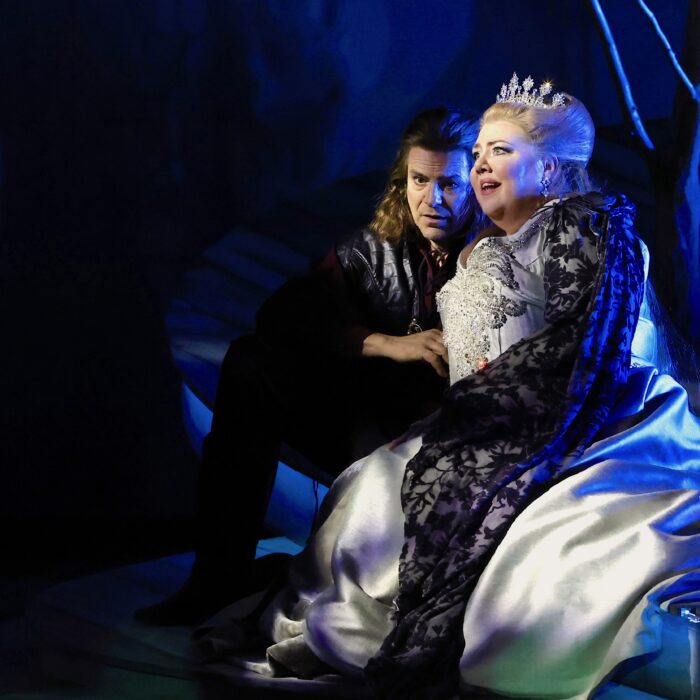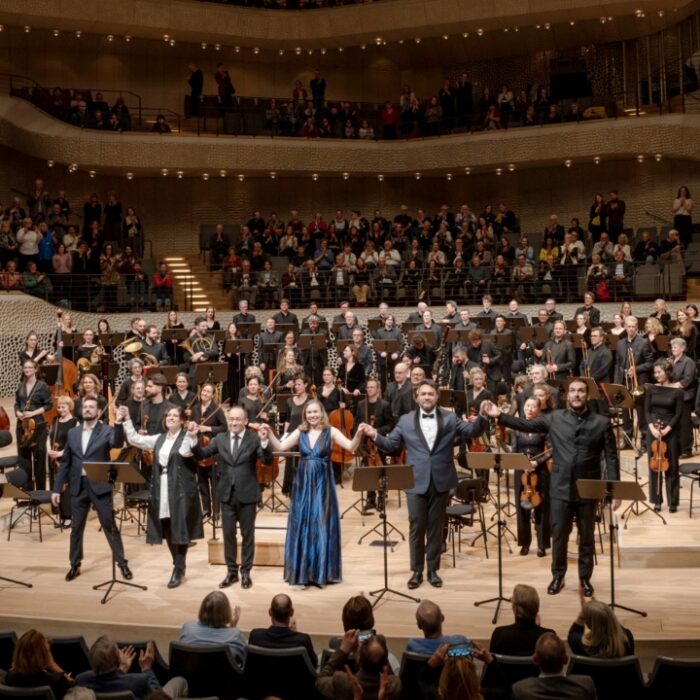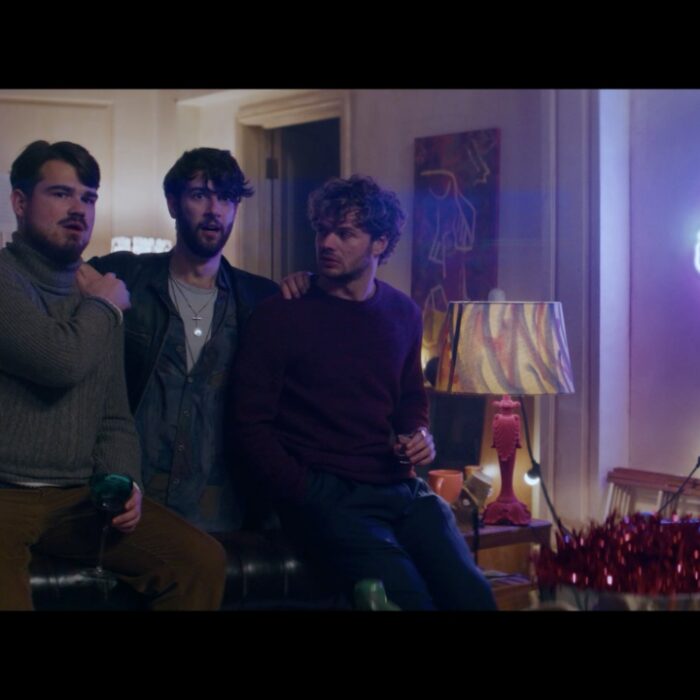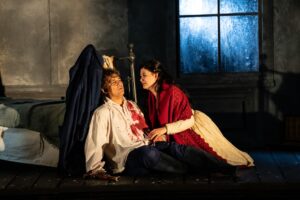
Royal Opera House 2022-23 Review: Werther
Aigul Akhmetshina Steals Limelight from Jonas Kaufmann in Breathtaking Turn
By Mike HardyThe origin of this opera, Johann Wolfgang von Goethe’s famous novel, “The Sorrows of Young Werther,” is based on a true story. The first half is based on Goethe himself, and the second half is based on his friend’s life. It was among the most popular books of the latter half of the 18th Century, almost 100 years before Massenet adapted it for his work here.
The tale epitomises to perfection, the quintessential requirements of verismo opera: passion, jealousy, love, tragedy and inevitable death.
The love here isn’t exactly unrequited but the object of the poet Werther’s passions and desires, Charlotte, has promised her dearly departed mother that she will marry another, Albert. Naturally, our intrepid hero isn’t best pleased and engages in several implorations designed to change her mind, including the threat of his own demise if she doesn’t acquiesce. Whilst she does relent in the end, she does so only on the realization that her paramour is, indeed, intent on ending it all and leaves it too late to save him, having to cradle him in her arms whilst she assuages his dying breaths with her protestations of her love for him.
Quite. All very tragic indeed….
Ostensibly, such a dark, morose tale makes it difficult to imagine it could ever be made into a work of much beauty. Whoever said truth is stranger than fiction might well have been commenting on “The Sorrows of Young Werther,” from which Massenet created this opera. Werther is an individual who personified exactly the flourishing Romanticism embraced and advocated by Goethe himself and which subsequently pervaded throughout Europe. His book resonated with and affected so many young people to such an extent that they allegedly killed themselves in significant numbers, in sympathy with Werther creating something of a most macabre fad or vogue.
The Main Attraction
Had primo tenore Jonas Kaufmann been alive in the time of Massenet, then on this showing I have no doubt he would have written the role of Werther specifically with the German tenor in mind. Much has been made recently of the superstar tenor’s voice, particularly with his propensity to resorting to sing inordinately long periods in his unique, floated pianissimo style, what some unkind critics have referred to as a “half-voiced croon,” but I found him here to be musically secure and evocative. Yes, he punctuated a lot of his passages sotto voce but I found that approach to totally befit the overly melancholic, dark character he was portraying, resulting in him delivering a most engaging and, at times, spell-binding performance that commanded absolute attention, drawing one in and empathising with his heartache.
It’s true that his voice occasionally failed to surmount the orchestral crescendos, and he noticeably stepped forward, at times, in his attempts to better permeate the theatre with his upper register at key moments, but I believe any vocal foibles here to be as a result of a slight illness he may be carrying rather than the doom-laden suspicions of some that Kaufmann may be approaching the cessation of his reign at the top.
His Act two ‘Un autre est son époux!’ was truly mesmerising. His exclaimed ‘It is I whom she could have loved’ genuinely endears one to his turmoil and evokes sympathy for his plight, no mean feat considering his somewhat self-absorbed, and occasionally selfish behaviour.
His Act three keynote aria, ‘Pourquoi me réveiller?’ was delivered with passion and sensitivity, the first ‘ô souffle du printemps?’ sung on the one, single breath, although I did detect some difficulty in him executing the top ‘A’s. Again, I consider this symptomatic of a bug or cold rather than genuine vocal decline.
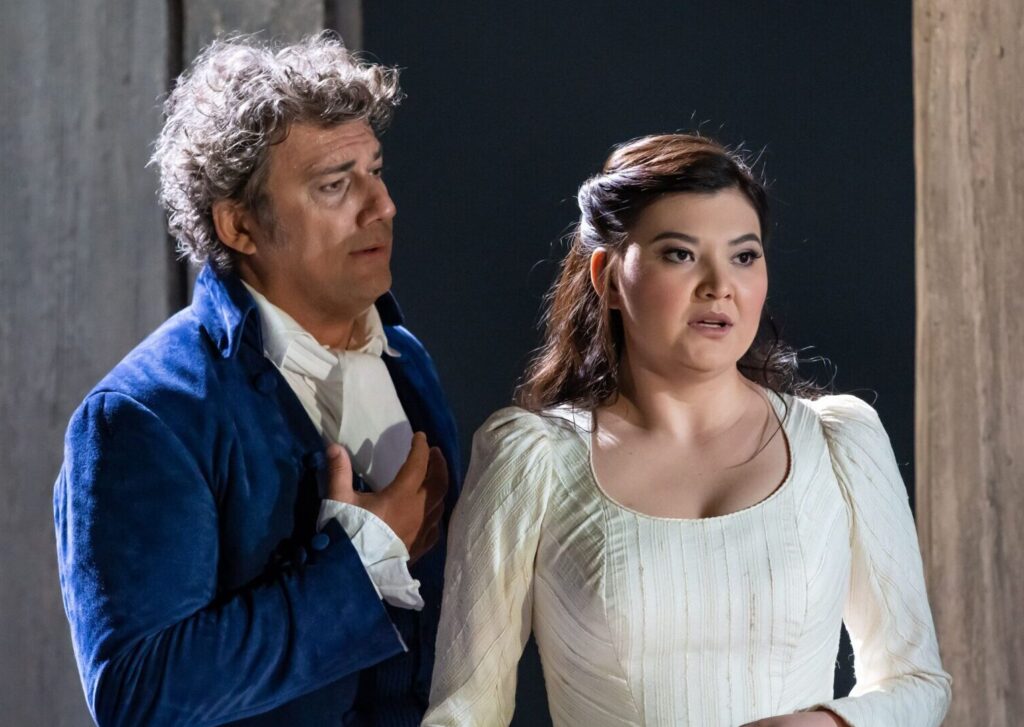
© Bill Cooper_088.JPG
The Star of the Show
No matter, even a top form Kaufmann would still have done well to surpass the extraordinary performance given by Russian Mezzo-Soprano Aigul Akhmetshina. She has already been hailed as ‘The new Netrebko’, and whilst her voice is genuinely redolent of Netrebko at her most potent, I genuinely believe she has the gifts to surpass the achievements and acclaim of her fellow Russian.
From her opening line, ‘Eh, bien, Père, es-tu content d’eux?’ to the final utterance, ‘Werther! Ah! Tout est fini!’, she delivered a mesmerizingly beautiful voice of wide-ranging palette. Her instrument is a remarkably rich, creamy, and seductive mezzo, penetrative but beautifully resonant. Her rendition in Act three of ‘Werther! Qui m’aurait dit … Ces lettres!’, was sublime and the house agreed, delivering the only in-performance applause of the evening. Her interpretations of surrogate mother to her siblings in Act one, through loyal, dutiful spouse to Albert in act two, to remorseful, subjugated lover of Werther in the final act was entirely convincing, such is the conviction of her acting and the expressiveness of her voice.
The applause at her curtain call was tumultuous and unparalleled, and Kaufmann, literally, lifted her off her feet in visible jubilation, acknowledging her achievements. A luminary of the distinguished Jette Parker Young Artists Programme, Akhmetshina’s stardom has been forecast for a while now, having garnered five-star reviews for performances as “Carmen,” Rosina in “Il Barbiere di Siviglia”, Elisabetta “Maria Stuarda” and as Lola in “Cavalleria Rusticana” as well as in other performances. I confidently predict that on this performance, her star is well and truly born.
British soprano and Cardiff Singer of the World finalist Sarah Gilford makes her debut here as Sophie, a delightfully sweet soprano who positively enchants and entrances. Her entreaties to Werther in Act two, ‘Du gai soleil, plein de flamme’ were utterly endearing, delivered with an almost ‘Snow-White’ charm and sweetness, whilst still managing to avoid saccharinity. Her gentleness and joie de vivre are almost palpable and one is left wondering how even Werther, entrenched as he is in his misery, could decline a dance with this beauty.
Likewise, her interactions with Charlotte in Act three after the latter has finished reading the letters from Werther, her compassion and concern for her older sister is tangible and she sings here with wonderful poignancy.
Werther’s foil, in the shape of Albert, is performed here by Canadian bass-baritone Gordon Bintner. Handsome in stature, looks and in voice, his sonorous baritone was most pleasing, surmounting even the most ardent orchestral passages. His ‘Elle m’aime…elle pense à moi!’ was impassioned and assertive. His strong presence, charm and character almost leave one wondering why Charlotte might wish to usurp him with Werther!
Royal Opera House veteran British bass Alastair Miles gets to grips with the role of Le Bailli, Charlotte’s father. His bass has an opulent warmth, a vibrant yet pleasing assuredness. His role of the widowed father of a large family could easily fall prey to cliché but he produces an accomplished and convincing performance here as compassionate guardian to his children.
The start of Act two sees some much-needed comedic interjection, courtesy of the local village drunks, Johann and Schmidt, friends of the Bailli, played by James Cleverton and Christophe Mortagne, respectively. Their animated and comical life observations, delivered courtesy of their ‘Vivat, Bacchus – Semper vivat!’, was genuinely funny. Curiously, tenor Mortagne is the only naturally French speaking artist in the production.
Old But Sturdy
Benoît Jacquot’s production here is almost twenty years old, but ostensibly, it appears as though it could be much older. Set and lighting designer Charles Edwards seems almost to pay homage to Jacquot’s expansive film-directing career, employing moody, cinematographic lighting that created looming, almost foreboding shadows, fitting for such an unavoidably gloomy tale.
The sets in the first two acts are expansive yet minimalist, act one depicting a simple garden/courtyard with a running water fountain and wall-climbing foliage that creates a rather austere scene. It is this restrained set that introduces the chief protagonists in the tale and establishes the stories framework, ending with Werther himself in front of the fallen curtain at the cessation of the act, symbolising his increasing isolation and desperation. Act two presents a large backdrop, somewhat naïve in its artistry, a mere expanse of blue sky behind a low, ornate wall that does little by way of enhancing any of the highly emotive occurrences taking place here.
Act three is a more convincing affair; a house interior, that of Charlotte and her husband, Albert. Its effectiveness is greater compounded when the rear facing door opens to reveal falling snow against the blackness of the night at the end of the act, as Charlotte steps out, preluding the imminent tragedy about to unfold.
The final act, in stark contrast to the sets of the other acts, is quite brilliant in its concept and almost as brilliant in its execution. The curtain rises to reveal Werther, mortally wounded with a self-inflicted pistol shot, in a half-seated, half-laying position in his abode, set as far back as the stage permits. Slowly, like a barely perceptible camera zoom or dolly shot, the set becomes larger as a combination of unseen stagehands and mechanics gradually propels him towards the front of the stage. I say ALMOST perfect in its execution because there were clear difficulties in maintaining a constant motion. There was a period where the set stopped advancing completely and a couple of very loud clunking noises where obvious issues with the set mechanism occurred. It did little, however, to detract from what was a most effective and quite engrossing effect.
Last word must go to the magnificent and accomplished orchestra of the Royal Opera House. Antonio Pappano has made no secret that “Werther” is amongst his favourite operas, “Perhaps my most favourite”. He has a most beautiful piece of art to work with here in the form of Massenet’s divine score and he elicits the most exquisite sounds from this orchestra. Particularly of note were solos in the first act, involving violin and cello, but Pappano produced sheer magic here with these amazing musicians throughout all four acts, always somehow managing to moderate the orchestration to allow the voices to permeate through. I believe the end of his tenure here will represent a huge, if not irreplaceable, loss to the opera house.

